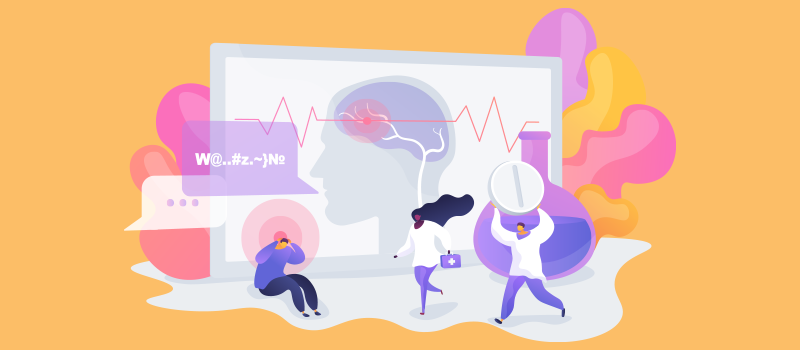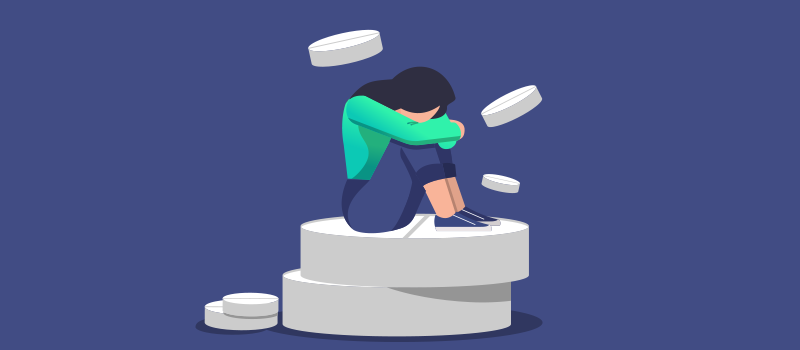What’s the Buzz
The Bee Healthy Blog
Seizure Disorder vs. Epilepsy: What's the Difference?

Epilepsy is the fourth most common neurological disorder. It can affect people of all ages. Roughly 3.5 million people in the United States (3 million adults and 500,000 children) have epilepsy and are at risk of having seizures. Please continue reading to learn more about epilepsy and seizures, including how they are different from each other.
What is a seizure?
A seizure is a burst of abnormal electrical activity in the brain. It can happen to anyone. Indeed, we all have a 10% chance of suffering from a seizure during our lifetimes. This abnormal electrical discharge can occur for various reasons, such as after a brain injury or stroke.
The surge of electrical activity in the brain can interfere with brain function and cause a variety of symptoms, such as unusual movements or sensations. The effects of the seizure depend on where in the brain the abnormal electrical activity occurs.
What are the different types of seizure disorders?
Seizures are broadly classified as provoked and unprovoked. Provoked seizures are brought on by a clear cause, such as uncontrolled diabetes, alcohol withdrawal, liver failure, brain tumor, stroke, or structural damage to the neurons (brain cells) due to trauma. On the other hand, unprovoked or unpredictable seizures are those that are brought on without a clear cause.
Most seizures last for just a few seconds. You should call 911 for any seizure that lasts more than 5 minutes. There are two types of seizures that can occur:
Generalized seizures
Also called tonic-clonic seizures, generalized seizures affect both sides of the brain. A generalized seizure can cause symptoms like jerking movements, shaking, or rapid blinking.
Partial seizures
Focal seizures, also called partial seizures, affect a small part of the brain. The symptoms can be subtle (such as an odd smell) or more dramatic (loss of awareness of surroundings). Sometimes, partial seizures can start in one part of the brain and spread to other areas.
What is epilepsy?
Epilepsy is a common brain disorder in which there are repeated seizures. It is also called a seizure disorder. Seizures are the main sign of epileptic syndromes. The symptoms of epileptic seizures can include temporary confusion, staring spells, uncontrolled jerking movements, muscle stiffness, loss of consciousness, and psychological symptoms like anxiety or fear.
Do seizures always mean epilepsy?
Anyone can have a seizure in their lifetime. However, a single seizure does not mean a person has epilepsy. Doctors diagnose epilepsy when there are two or more unprovoked seizures that happen more than 24 hours apart. There is no underlying cause for the seizures, such as a head injury, low blood sugar, or infection. Note that multiple seizures in one day (within 24 hours) do not indicate epilepsy. Doctors can perform tests to identify abnormal electrical activity in the brain that clearly shows the symptoms are caused by seizures.
Is epilepsy a disease or disorder?
Epilepsy is a neurological disorder. It is also called a chronic seizure disorder. Some other medical conditions that cause seizures are potentially life-threatening. That is why it is important to seek medical attention after experiencing one or more seizures, even if the symptoms are mild.
What are the similarities between seizures and epilepsy?
Seizures are the main sign of epileptic syndromes. Epileptic seizures and seizures caused by other disorders can be similar in the following ways:
- The symptoms of the seizures can be the same. It is impossible to distinguish between epileptic seizures and seizures due to other causes based on symptoms alone.
- Both epilepsy and other seizure-causing conditions put the affected person at risk of injuries from motor vehicle accidents, falls, drowning, etc.
- In both epilepsy and seizures due to other causes, the seizure itself is not dangerous unless it lasts more than 5 minutes or causes injuries.
It is important to have epilepsy medically reviewed. Doctors can identify the reason for the seizures and treat them accordingly.
What is the difference between seizure disorder and epilepsy?
Some key differences between epileptic seizures and seizures due to other health conditions include:
- Some medical conditions that cause seizures are potentially life-threatening; for example, a person can die from uncontrolled diabetes, dehydration, severe infections, or a brain injury.
- Seizures caused by a medical condition other than epilepsy are usually accompanied by other symptoms related to that condition.
- Doctors diagnose epilepsy by excluding other causes of seizures. A single test can provide clarity in the diagnosis. For example, if a person has a seizure and is found to have very low blood glucose, doctors may conclude that this was the culprit.
What other conditions can cause seizures?
As noted, other medical conditions, besides epilepsy, can cause seizures. People with these conditions may have seizures, but seizures may not be the main symptom. Or they may never have a seizure. Epilepsy is the only condition in which seizures are the main symptom. Potential non-epileptic triggers of seizures include:
- High fever, especially in young children.
- Exposure to toxins, chemicals, and drugs.
- Electrolyte imbalance due to severe dehydration or uncontrolled diabetes.
- Severe infections of the bloodstream or brain.
- Widespread inflammation in the body.
- Trauma, such as a blow to the head, oxygen deprivation, stroke, or anything that structurally damages the brain.
- HELLP syndrome that can occur during pregnancy.
What is the treatment for epilepsy?
People with epilepsy can lead active and fulfilling lives, including holding down jobs and raising families. Epileptic seizures can be controlled with medication and other therapies like deep brain stimulation, vagus nerve stimulation, and a ketogenic diet. If these measures fail to provide adequate seizure control, doctors may offer epilepsy surgery.
What to do if someone is having a seizure?
If you think someone is experiencing a seizure, protect their head with a blanket or coat. Do not put anything in their mouth or try to restrain uncontrolled movements, if any. This can lead to choking or injuries. The Centers for Disease Control and Prevention (CDC) recommends that you call 911 if:
- It is the first time the person is having a seizure.
- The seizure lasts for more than 5 minutes.
- There is another seizure soon after the first seizure.
- The person has difficulty breathing.
- The person does not wake up after the seizure.
- The seizure causes injuries.
- The seizure occurs in water.
- The person has other health conditions like heart disease or diabetes or is pregnant.
References:
- https://www.cdc.gov/epilepsy/data/index.html
- https://nyulangone.org/conditions/epilepsy-seizure-disorders-in-adults/types
- https://www.epilepsy.com/learn/about-epilepsy-basics/what-epilepsy
- https://www.cdc.gov/dotw/epilepsy/index.html#
- https://www.mayoclinic.org/diseases-conditions/epilepsy/symptoms-causes/syc-20350093
- https://www.ncbi.nlm.nih.gov/books/NBK430765/
- https://www.cdc.gov/epilepsy/basics/first-aid.htm











SOCIAL